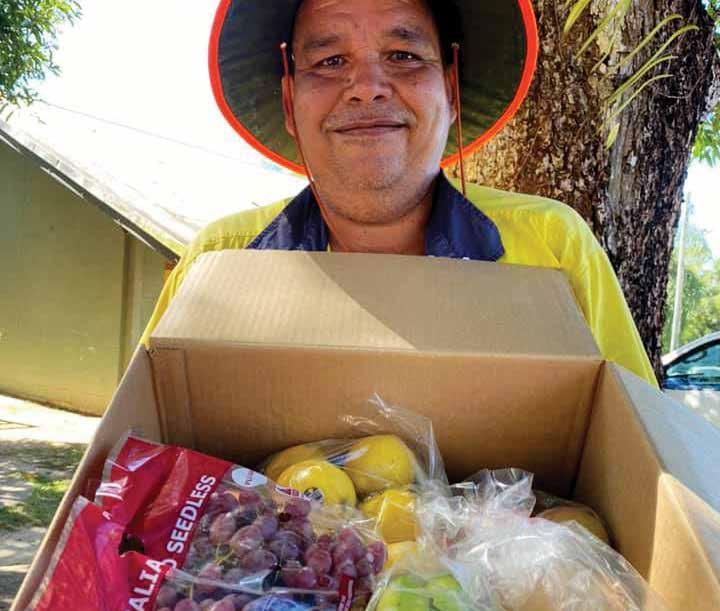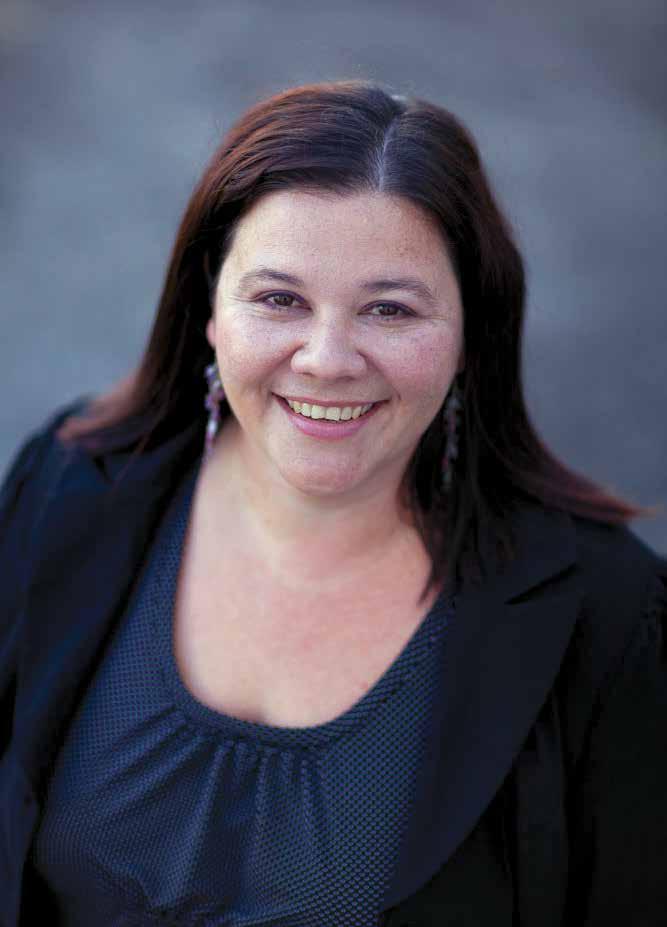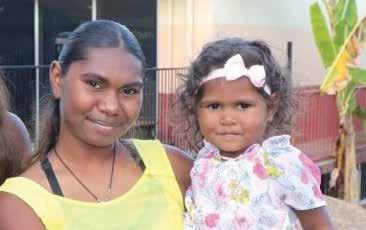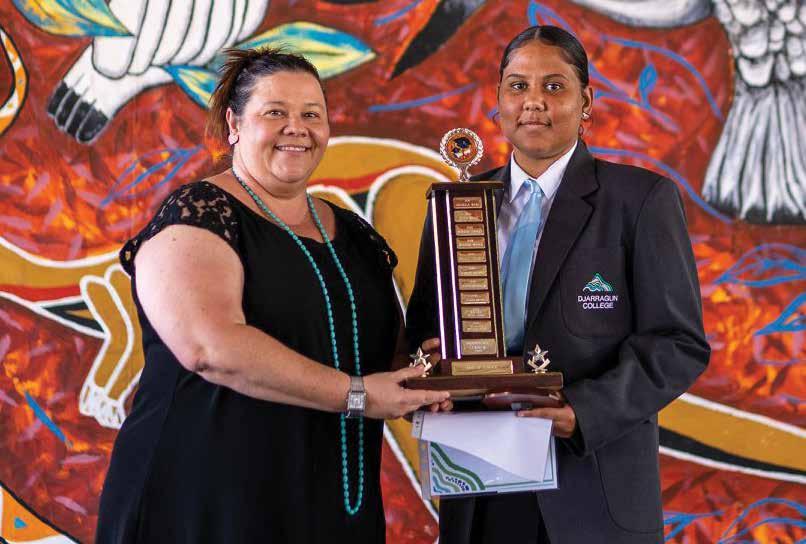
6 minute read
Welcome
Welcome to the Family Empowerment Report (FER) for July to December 2020.
Yalada,
Advertisement
Close the gap. Historic targets. A new way. A better partnership. We’ve heard these often, especially lately…
All potentially powerful, but powerless and only lip service when no plan of action is attached. Without a commitment to ‘how’ the discourse for change works precisely so that everything stays the same.
The failings of Indigenous affairs are not due to Indigenous people making poor choices, lack of evidence about what works, or lack of money, the long and strong evidence base tells that the history of failure comes with refusal to commit to structural reform that thoroughly makes right the relationship between Indigenous people and governments.
But HOW, is the perennial question.
This has been the long 20-year journey of Cape York Partnership—to put into practice the ‘how’ with ‘Indigenous-led’ a fundamental practice from policy design to implementation.

This is ‘why’ we can report traction, we focus on ‘how’. You will note on page 10 our cogs of change—a system approach—a development agenda articulated and designed by our old people many decades ago starting with families. Our mantra and focus on those cogs of development have not changed.
This report demonstrates when the opportunity and policy is Indigenous-designed and led our families respond well and the new Mayi Market, launched during COVID-19 is a good example. Four small Cape York communities in the last six months bought 2,700 boxes of quality affordable fresh fruit, vegetables, meat, eggs, spending more than $100,000. They are smashing this myth that our people don’t make healthy choices. Affordable healthy food is a basic human right. Bad policy and a sustained indifference to the lives of Indigenous people has created an environment for unhealthy behaviour.
This indifference to our lives can be seen clearly in the employment and economic justice space in Cape York and those cogs remain stuck unless there is commitment to structural reform. Again, but ‘how’.
Instead of the Government funding unemployment through passive welfare, we are proposing a Job Guarantee—full employment for those who want a job. In 1945-1975 the Commonwealth had an official policy of full employment. For 30 years every Australian who was able to work could get a job. This changed in 1975 and Government policy has resulted in many Indigenous communities experiencing intolerable unemployment—in some cases higher than 80%. Cape York Institute (CYI), in partnership with Professor Bill Mitchell of the University of New South Wales submitted to the Australian Government in July “A National Job Guarantee” policy.
We have argued that 1,400 jobs could be created in communities and around the state (for those willing to relocate) by Councils, PBCs (Prescribed Bodies Corporate), non-government entities, and social organisations. We call for 100% employment to shift that cog once and for all. Governments must not turn away any longer from the loud voices on this issue of jobs.
Our people do not choose poor health. Our children are 125 times more likely to suffer rheumatic fever that could be prevented, treated, and even eradicated from communities as it has been in third world countries. I raise this because we report here on a student at Djarragun College, a Rheumatic Fever survivor, who will experience lifelong problems. This student will struggle without health seeking behaviour. But again, ‘how’. This is why Nagk Min Health exists at our College, to embed health seeking behaviour amongst our students and families as early as possible. Students and their families are offered culturally sensitive general health, developmental care, parenting support, Indigenous psychology and traumainformed care.
Their families are also supported to navigate the complex health system, specialists are brought on site and transport is provided for those who would otherwise not make a health check.
The Mayi Market delivers fresh fruit, vegetables, eggs, meat and seafood directly to the communities of Coen, Hope Vale, Mossman Gorge, and Wujal Wujal.
No one falls through the cracks, with health assessments and follow-up care planned for every child. Because of this approach, assessments have unearthed hearing problems, mental health issues and developmental concerns such as autism.
This is the ‘how’—Indigenous-designed and led. There is a prevailing scourge across our society and dominating our headlines for which non-Indigenous and Indigenous communities do not have the ‘how’. Concerns of sexual violence, youth sexual violence in particular, have been raised by our people, mostly women for several decades without an adequate government response. The alarming Smallbone Report in 2013 sparked a series of State Government led Committees and Reports that produced little to no action. CYI has embarked on an inquiry and co-design approach to support Cape York and Cairns West communities. We enlisted former Federal Sex Discrimination Commissioner and NSW Minister for Prevention of Domestic Violence and Sexual Assault the Hon Pru Goward to conduct the inquiry. I would like to thank the more than 50 experts, service providers, and community members for their courage in speaking so candidly, and governments for providing data. The aim is to assess the past and current responses and co-design with our communities a system approach for governments to support. No one expects governments to have the answers but they must enable those on the ground with an opportunity to be a part of the solution.
Without the communities leading, our people this year may have faced very different COVID-19 impacts. The threat of the pandemic on vulnerable people and the ever-changing regulatory circumstances required governments to respond swiftly and think critically about how best to support and

Rahenna, a young mother from Warruwi in the Northern Territory, graduated from our Girl Academy with a QCE and is working towards a Certificate III in Early Childhood Education. I was delighted to present Devanna Wilson-Neal with the Dux Award at Djarragun College’s 2020 Presentation Day.

protect remote communities. It underlined the need to respect local voice and for all stakeholders to work collectively to ensure that all efforts are effective in reaching Indigenous people and enabling real impact in their lives and futures. I can not commend enough the leadership demonstrated by our local leaders.
I have covered some intense ground here so I would like to conclude on the same note we ended the year—with the very exciting graduation of our Year 12s at Djarragun College and the Cape York Girl Academy. We celebrated the highest number of graduates to date—with all achieving either a Queensland Certificate of Education (QCE), a Queensland Certification of Individual Achievement (QCIA) and Vocational Education and Training (VET) qualifications, during a pandemic year no less. The extraordinary courage of our Girl Academy graduates, including one teen mum who took a giant step out of her Northern Territory community with her baby to live and learn together, and prepare for life beyond school, have earned a badge of valour in my books. I could not be more proud of our programs that support not only academic achievement but also the growth of health, social, emotional, and spiritual strength.
The past year has been the most unexpected yet, by virtue of a global pandemic, and of course the Black Lives Matter movement, which has helped to shine a light on the power imbalance at the heart of the relationship with governments and Indigenous communities. This is the challenge for the years ahead of us. ‘How’ we bring about balance will come down to national leadership.
FIONA JOSE | CAPE YORK PARTNERSHIP










